Freud Quotes
Quotes tagged as "freud"
Showing 1-30 of 207
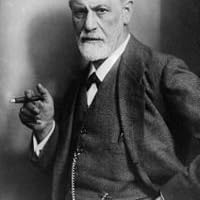
“Unexpressed emotions will never die. They are buried alive and will come forth later in uglier ways.”
―
―

“[Said during a debate when his opponent asserted that atheism and belief in evolution lead to Nazism:]
Atheism by itself is, of course, not a moral position or a political one of any kind; it simply is the refusal to believe in a supernatural dimension. For you to say of Nazism that it was the implementation of the work of Charles Darwin is a filthy slander, undeserving of you and an insult to this audience. Darwin’s thought was not taught in Germany; Darwinism was so derided in Germany along with every other form of unbelief that all the great modern atheists, Darwin, Einstein and Freud were alike despised by the National Socialist regime.
Now, just to take the most notorious of the 20th century totalitarianisms – the most finished example, the most perfected one, the most ruthless and refined one: that of National Socialism, the one that fortunately allowed the escape of all these great atheists, thinkers and many others, to the United States, a country of separation of church and state, that gave them welcome – if it’s an atheistic regime, then how come that in the first chapter of Mein Kampf, that Hitler says that he’s doing God’s work and executing God’s will in destroying the Jewish people? How come the fuhrer oath that every officer of the Party and the Army had to take, making Hitler into a minor god, begins, “I swear in the name of almighty God, my loyalty to the Fuhrer?” How come that on the belt buckle of every Nazi soldier it says Gott mit uns, God on our side? How come that the first treaty made by the Nationalist Socialist dictatorship, the very first is with the Vatican? It’s exchanging political control of Germany for Catholic control of German education. How come that the church has celebrated the birthday of the Fuhrer every year, on that day until democracy put an end to this filthy, quasi-religious, superstitious, barbarous, reactionary system?
Again, this is not a difference of emphasis between us. To suggest that there’s something fascistic about me and about my beliefs is something I won't hear said and you shouldn't believe.”
―
Atheism by itself is, of course, not a moral position or a political one of any kind; it simply is the refusal to believe in a supernatural dimension. For you to say of Nazism that it was the implementation of the work of Charles Darwin is a filthy slander, undeserving of you and an insult to this audience. Darwin’s thought was not taught in Germany; Darwinism was so derided in Germany along with every other form of unbelief that all the great modern atheists, Darwin, Einstein and Freud were alike despised by the National Socialist regime.
Now, just to take the most notorious of the 20th century totalitarianisms – the most finished example, the most perfected one, the most ruthless and refined one: that of National Socialism, the one that fortunately allowed the escape of all these great atheists, thinkers and many others, to the United States, a country of separation of church and state, that gave them welcome – if it’s an atheistic regime, then how come that in the first chapter of Mein Kampf, that Hitler says that he’s doing God’s work and executing God’s will in destroying the Jewish people? How come the fuhrer oath that every officer of the Party and the Army had to take, making Hitler into a minor god, begins, “I swear in the name of almighty God, my loyalty to the Fuhrer?” How come that on the belt buckle of every Nazi soldier it says Gott mit uns, God on our side? How come that the first treaty made by the Nationalist Socialist dictatorship, the very first is with the Vatican? It’s exchanging political control of Germany for Catholic control of German education. How come that the church has celebrated the birthday of the Fuhrer every year, on that day until democracy put an end to this filthy, quasi-religious, superstitious, barbarous, reactionary system?
Again, this is not a difference of emphasis between us. To suggest that there’s something fascistic about me and about my beliefs is something I won't hear said and you shouldn't believe.”
―

“The ORDINARY RESPONSE TO ATROCITIES is to banish them from consciousness. Certain violations of the social compact are too terrible to utter aloud: this is the meaning of the word unspeakable.
Atrocities, however, refuse to be buried. Equally as powerful as the desire to deny atrocities is the conviction that denial does not work. Folk wisdom is filled with ghosts who refuse to rest in their graves until their stories are told. Murder will out. Remembering and telling the truth about terrible events are prerequisites both for the restoration of the social order and for the healing of individual victims.
The conflict between the will to deny horrible events and the will to proclaim them aloud is the central dialectic of psychological trauma. People who have survived atrocities often tell their stories in a highly emotional, contradictory, and fragmented manner that undermines their credibility and thereby serves the twin imperatives of truth-telling and secrecy. When the truth is finally recognized, survivors can begin their recovery. But far too often secrecy prevails, and the story of the traumatic event surfaces not as a verbal narrative but as a symptom.
The psychological distress symptoms of traumatized people simultaneously call attention to the existence of an unspeakable secret and deflect attention from it. This is most apparent in the way traumatized people alternate between feeling numb and reliving the event. The dialectic of trauma gives rise to complicated, sometimes uncanny alterations of consciousness, which George Orwell, one of the committed truth-tellers of our century, called "doublethink," and which mental health professionals, searching for calm, precise language, call "dissociation." It results in protean, dramatic, and often bizarre symptoms of hysteria which Freud recognized a century ago as disguised communications about sexual abuse in childhood. . . .”
― Trauma and Recovery: The Aftermath of Violence - From Domestic Abuse to Political Terror
Atrocities, however, refuse to be buried. Equally as powerful as the desire to deny atrocities is the conviction that denial does not work. Folk wisdom is filled with ghosts who refuse to rest in their graves until their stories are told. Murder will out. Remembering and telling the truth about terrible events are prerequisites both for the restoration of the social order and for the healing of individual victims.
The conflict between the will to deny horrible events and the will to proclaim them aloud is the central dialectic of psychological trauma. People who have survived atrocities often tell their stories in a highly emotional, contradictory, and fragmented manner that undermines their credibility and thereby serves the twin imperatives of truth-telling and secrecy. When the truth is finally recognized, survivors can begin their recovery. But far too often secrecy prevails, and the story of the traumatic event surfaces not as a verbal narrative but as a symptom.
The psychological distress symptoms of traumatized people simultaneously call attention to the existence of an unspeakable secret and deflect attention from it. This is most apparent in the way traumatized people alternate between feeling numb and reliving the event. The dialectic of trauma gives rise to complicated, sometimes uncanny alterations of consciousness, which George Orwell, one of the committed truth-tellers of our century, called "doublethink," and which mental health professionals, searching for calm, precise language, call "dissociation." It results in protean, dramatic, and often bizarre symptoms of hysteria which Freud recognized a century ago as disguised communications about sexual abuse in childhood. . . .”
― Trauma and Recovery: The Aftermath of Violence - From Domestic Abuse to Political Terror
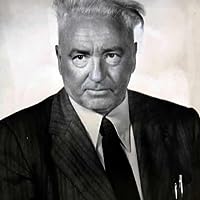
“It is the fate of great achievements, born from a way of life that sets truth before security, to be gobbled up by you and excreted in the form of shit. For centuries great, brave, lonely men have been telling you what to do. Time and again you have corrupted, diminished and demolished their teachings; time and again you have been captivated by their weakest points, taken not the great truth, but some trifling error as your guiding principal. This, little man, is what you have done with Christianity, with the doctrine of sovereign people, with socialism, with everything you touch. Why, you ask, do you do this? I don't believe you really want an answer. When you hear the truth you'll cry bloody murder, or commit it. … You had your choice between soaring to superhuman heights with Nietzsche and sinking into subhuman depths with Hitler. You shouted Heil! Heil! and chose the subhuman. You had the choice between Lenin's truly democratic constitution and Stalin's dictatorship. You chose Stalin's dictatorship. You had your choice between Freud's elucidation of the sexual core of your psychic disorders and his theory of cultural adaptation. You dropped the theory of sexuality and chose his theory of cultural adaptation, which left you hanging in mid-air. You had your choice between Jesus and his majestic simplicity and Paul with his celibacy for priests and life-long compulsory marriage for yourself. You chose the celibacy and compulsory marriage and forgot the simplicity of Jesus' mother, who bore her child for love and love alone. You had your choice between Marx's insight into the productivity of your living labor power, which alone creates the value of commodities and the idea of the state. You forgot the living energy of your labor and chose the idea of the state. In the French Revolution, you had your choice between the cruel Robespierre and the great Danton. You chose cruelty and sent greatness and goodness to the guillotine. In Germany you had your choice between Goring and Himmler on the one hand and Liebknecht, Landau, and Muhsam on the other. You made Himmler your police chief and murdered your great friends. You had your choice between Julius Streicher and Walter Rathenau. You murdered Rathenau. You had your choice between Lodge and Wilson. You murdered Wilson. You had your choice between the cruel Inquisition and Galileo's truth. You tortured and humiliated the great Galileo, from whose inventions you are still benefiting, and now, in the twentieth century, you have brought the methods of the Inquisition to a new flowering. … Every one of your acts of smallness and meanness throws light on the boundless wretchedness of the human animal. 'Why so tragic?' you ask. 'Do you feel responsible for all evil?' With remarks like that you condemn yourself. If, little man among millions, you were to shoulder the barest fraction of your responsibility, the world would be a very different place. Your great friends wouldn't perish, struck down by your smallness.”
― Listen, Little Man!
― Listen, Little Man!
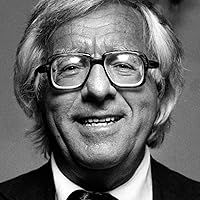
“They knew how to live with nature and get along with nature. They didn't try too hard to be all men and no animal. That's the mistake we made when Darwin showed up. We embraced him and Huxley and Freud, all smiles. And then we discovered that Darwin and our religions didn't mix. Or at least we didn't think they did. We were fools. We tried to budge Darwin and Huxley and Freud. They wouldn't move very well. So, like idiots, we tried knocking down religion. We succeeded pretty well. We lost our faith and went around wondering what life was for. If art was no more than a frustrated outflinging of desire, if religion was no more than self-delusion, what good was life? Faith had always given us answer to all things. But it all went down the drain with Freud and Darwin. We were and still are lost people.”
― The Martian Chronicles
― The Martian Chronicles

“It is a predisposition of human nature to consider an unpleasant idea untrue, and then it is easy to find arguments against it.”
― A General Introduction to Psychoanalysis
― A General Introduction to Psychoanalysis

“Thus I must contradict you when you go on to argue that men are completely unable to do without the consolation of the religious illusion, that without it they could not bear the troubles of life and the cruelties of reality. That is true, certainly, of the men into whom you have instilled the sweet -- or bitter-sweet -- poison from childhood onwards. But what of the other men, who have been sensibly brought up? Perhaps those who do not suffer from the neurosis will need no intoxicant to deaden it. They will, it is true, find themselves in a difficult situation. They will have to admit to themselves the full extent of their helplessness and their insignificance in the machinery of the universe; they can no longer be the centre of creation, no longer the object of tender care on the part of a beneficent Providence. They will be in the same position as a child who has left the parental house where he was so warm and comfortable. But surely infantilism is destined to be surmounted. Men cannot remain children for ever; they must in the end go out into 'hostile life'. We may call this 'education to reality. Need I confess to you that the whole purpose of my book is to point out the necessity for this forward step?”
― The Future of an Illusion
― The Future of an Illusion

“Women never bought Freud's idea of penis envy: who would want a shotgun when you can have an automatic?”
― Woman: An Intimate Geography
― Woman: An Intimate Geography

“I think I have a very good idea why it is that anti-Semitism is so tenacious and so protean and so enduring. Christianity and Islam, theistic though they may claim to be, are both based on the fetishizing of human primates: Jesus in one case and Mohammed in the other. Neither of these figures can be called exactly historical but both have one thing in common even in their quasi-mythical dimension. Both of them were first encountered by the Jews. And the Jews, ravenous as they were for any sign of the long-sought Messiah, were not taken in by either of these two pretenders, or not in large numbers or not for long.
If you meet a devout Christian or a believing Muslim, you are meeting someone who would give everything he owned for a personal, face-to-face meeting with the blessed founder or prophet. But in the visage of the Jew, such ardent believers encounter the very figure who did have such a precious moment, and who spurned the opportunity and turned shrugging aside. Do you imagine for a microsecond that such a vile, churlish transgression will ever be forgiven? I myself certainly hope that it will not. The Jews have seen through Jesus and Mohammed. In retrospect, many of them have also seen through the mythical, primitive, and cruel figures of Abraham and Moses. Nearer to our own time, in the bitter combats over the work of Marx and Freud and Einstein, Jewish participants and protagonists have not been the least noticeable. May this always be the case, whenever any human primate sets up, or is set up by others, as a Messiah.”
― Hitch 22: A Memoir
If you meet a devout Christian or a believing Muslim, you are meeting someone who would give everything he owned for a personal, face-to-face meeting with the blessed founder or prophet. But in the visage of the Jew, such ardent believers encounter the very figure who did have such a precious moment, and who spurned the opportunity and turned shrugging aside. Do you imagine for a microsecond that such a vile, churlish transgression will ever be forgiven? I myself certainly hope that it will not. The Jews have seen through Jesus and Mohammed. In retrospect, many of them have also seen through the mythical, primitive, and cruel figures of Abraham and Moses. Nearer to our own time, in the bitter combats over the work of Marx and Freud and Einstein, Jewish participants and protagonists have not been the least noticeable. May this always be the case, whenever any human primate sets up, or is set up by others, as a Messiah.”
― Hitch 22: A Memoir

“Should we not be moved rather than chilled by the knowledge that he might have attained his greatness only through his frailties?”
― Sigmund Freud and Lou Andreas-Salome Letters
― Sigmund Freud and Lou Andreas-Salome Letters

“In truth, Freud sees nothing and understands nothing.”
― A Thousand Plateaus: Capitalism and Schizophrenia
― A Thousand Plateaus: Capitalism and Schizophrenia
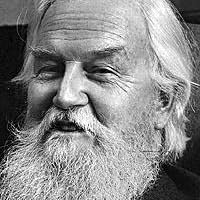
“But one must remember that they were all men with systems. Freud, monumentally hipped on sex (for which he personally had little use) and almost ignorant of Nature: Adler, reducing almost everything to the will to power: and Jung, certainly the most humane and gentlest of them, and possibly the greatest, but nevertheless the descendant of parsons and professors, and himself a super-parson and a super-professor. all men of extraordinary character, and they devised systems that are forever stamped with that character.… Davey, did you ever think that these three men who were so splendid at understanding others had first to understand themselves? It was from their self-knowledge they spoke. They did not go trustingly to some doctor and follow his lead because they were too lazy or too scared to make the inward journey alone. They dared heroically. And it should never be forgotten that they made the inward journey while they were working like galley-slaves at their daily tasks, considering other people's troubles, raising families, living full lives. They were heroes, in a sense that no space-explorer can be a hero, because they went into the unknown absolutely alone. Was their heroism simply meant to raise a whole new crop of invalids? Why don't you go home and shoulder your yoke, and be a hero too?”
― The Manticore
― The Manticore
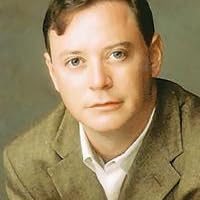
“While people argue with one another about the specifics of Freud's work and blame him for the prejudices of his time, they overlook the fundamental truth of his writing, his grand humility: that we frequently do not know our own motivations in life and are prisoners to what we cannot understand. We can recognize only a small fragment of our own, and an even smaller fragment of anyone else's, impetus.”
― The Noonday Demon: An Atlas of Depression
― The Noonday Demon: An Atlas of Depression

“Thanks, Dad, for leaving a huge void in my life that Freud says has to be filled with dick.”
― Unteachable
― Unteachable

“The four most influential moderns: Darwin, Marx, Freud, and (the productive) Einstein were scholars but not academics. It has always been hard to do genuine - and no perishable - work within institutions”
―
―
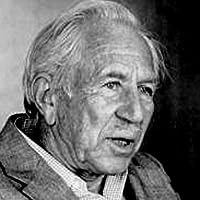
“The most effective weapon a parent has to control a child is the withdrawal of love or its threat. A young child between the ages of three and six is too dependent on parental love and approval to resist this pressure. Robert's mother, as we saw earlier, controlled him by "cutting him out." Margaret's mother beat her into submission, but it was the loss of her father's love that devastated her. Whatever the means parents use, the result is that the child is forced to give up his instinctual longing, to suppress his sexual desires for one parent and his hostility toward the other. In their place he will develop feelings of guilt about his sexuality and fear of authority figures. This surrender constitutes an acceptance of parental power and authority and a submission to the parents' values and demands. The child becomes "good", which means that he gives up his sexual orientation in favor of one directed toward achievement. Parental authority is introjected in the form of a superego, ensuring that the child will follow his parents' wishes in the acculturation process. In effect, the child now identifies with the threatening parent. Freud says, "The whole process, on the one hand, preserves the genital organ wards off the danger of losing it; on the other hand, it paralyzes it, takes its function away from it.”
― Fear Of Life
― Fear Of Life

“If Freud turns to literature to describe traumatic experience, it is because literature, like psychoanalysis, is interested in the complex relation between knowing and not knowing, and it is at this specific point at which knowing and not knowing intersect that the psychoanalytic theory of traumatic experience and the language of literature meet.”
― Unclaimed Experience: Trauma, Narrative and History
― Unclaimed Experience: Trauma, Narrative and History

“Our possibilities of happiness are already restricted by our constitution. Unhappiness is much less difficult to experience. We are threatened with suffering from three directions: from our own body, which is doomed to decay and dissolution and which cannot even do without pain and anxiety as warning signals; from the external world, which may rage against us with overwhelming and merciless forces of destruction; and finally from our relations to other men. The suffering which comes from this last source is perhaps more painful to us than any other.”
―
―

“It was Freud's ambition to discover the cause of hysteria, the archetypal female neurosis of his time. In his early investigations, he gained the trust and confidence of many women, who revealed their troubles to him.Time after time, Freud's patients, women from prosperous, conventional families, unburdened painful memories of childhood sexual encounters with men they had trusted: family friends, relatives, and fathers. Freud initially believed his patients and recognized the significance of their confessions. In 1896, with the publication of two works, The Aetiology of Hysteria and Studies on Hysteria, he announced that he had solved the mystery of the female neurosis. At the origin of every case of hysteria, Freud asserted, was a childhood sexual trauma.
But Freud was never comfortable with this discovery, because of what it implied about the behavior of respectable family men. If his patients' reports were true, incest was not a rare abuse, confined to the poor and the mentally defective, but was endemic to the patriarchal family. Recognizing the implicit challenge to patriarchal values, Freud refused to identify fathers publicly as sexual aggressors. Though in his private correspondence he cited "seduction by the father" as the "essential point" in hysteria, he was never able to bring himself to make this statement in public. Scrupulously honest and courageous in other respects, Freud falsified his incest cases. In The Aetiology of Hysteria, Freud implausibly identified governessss, nurses, maids, and children of both sexes as the offenders. In Studies in Hysteria, he managed to name an uncle as the seducer in two cases. Many years later, Freud acknowledged that the "uncles" who had molested Rosaslia and Katharina were in fact their fathers. Though he had shown little reluctance to shock prudish sensibilities in other matters, Freud claimed that "discretion" had led him to suppress this essential information.
Even though Freud had gone to such lengths to avoid publicly inculpating fathers, he remained so distressed by his seduction theory that within a year he repudiated it entirely. He concluded that his patients' numerous reports of sexual abuse were untrue. This conclusion was based not on any new evidence from patients, but rather on Freud's own growing unwillingness to believe that licentious behavior on the part of fathers could be so widespread. His correspondence of the period revealed that he was particularly troubled by awareness of his own incestuous wishes toward his daughter, and by suspicions of his father, who had died recently.
p9-10”
― Father-Daughter Incest
But Freud was never comfortable with this discovery, because of what it implied about the behavior of respectable family men. If his patients' reports were true, incest was not a rare abuse, confined to the poor and the mentally defective, but was endemic to the patriarchal family. Recognizing the implicit challenge to patriarchal values, Freud refused to identify fathers publicly as sexual aggressors. Though in his private correspondence he cited "seduction by the father" as the "essential point" in hysteria, he was never able to bring himself to make this statement in public. Scrupulously honest and courageous in other respects, Freud falsified his incest cases. In The Aetiology of Hysteria, Freud implausibly identified governessss, nurses, maids, and children of both sexes as the offenders. In Studies in Hysteria, he managed to name an uncle as the seducer in two cases. Many years later, Freud acknowledged that the "uncles" who had molested Rosaslia and Katharina were in fact their fathers. Though he had shown little reluctance to shock prudish sensibilities in other matters, Freud claimed that "discretion" had led him to suppress this essential information.
Even though Freud had gone to such lengths to avoid publicly inculpating fathers, he remained so distressed by his seduction theory that within a year he repudiated it entirely. He concluded that his patients' numerous reports of sexual abuse were untrue. This conclusion was based not on any new evidence from patients, but rather on Freud's own growing unwillingness to believe that licentious behavior on the part of fathers could be so widespread. His correspondence of the period revealed that he was particularly troubled by awareness of his own incestuous wishes toward his daughter, and by suspicions of his father, who had died recently.
p9-10”
― Father-Daughter Incest

“We need not deplore the renunciation of historical truth when we put forward rational grounds for the precepts of civilization. The truths contained in religious doctrines are after all so distorted and systematically disguised that the mass of humanity cannot recognize them as truth. The case is similar to what happens when we tell a child that new-born babies are brought by the stork. Here, too, we are telling the truth in symbolic clothing, for we know what the large bird signifies . But the child does not know it. He hears only the distorted part of what we say, and feels that he has been deceived; and we know how often his distrust of the grown-ups and his refractoriness actually take their start from this impression. We have become convinced that it is better to avoid such symbolic disguisings of the truth in what we tell children and not to withhold from them a knowledge of the true state of affairs commensurate with their intellectual level.”
― The Future of an Illusion
― The Future of an Illusion

“Sigmund Freud was a novelist with a scientific background. He just didn’t know he was a novelist. All those damn psychiatrists after him, they didn’t know he was a novelist either."
(Interview in Writers at Work: The Paris Review Interviews, Eighth Series, ed. George Plimpton, 1988)”
―
(Interview in Writers at Work: The Paris Review Interviews, Eighth Series, ed. George Plimpton, 1988)”
―

“I may now add that civilization is a process in the service of Eros, whose purpose is to combine single human individuals, and after that families, then races, peoples and nations, into one great unity, the unity of mankind.”
― Civilization and Its Discontents
― Civilization and Its Discontents

“For Marx, the only thing that motivates humans is money. For Freud, it’s libido. And for Schopenhauer, it is the blind metaphysical will. All are horribly wrong. More than anything, man seeks meaning in his life. And in that meaning, he seeks superiority over others.”
― The Influencer: Speed Must Have a Limit
― The Influencer: Speed Must Have a Limit

“The intentions of the cybernetic totalist tribe are good. They are simply following a path that was blazed in earlier times by well-meaning Freudians and Marxists - and I don't mean that in a pejorative way. I'm thinking of the earliest incarnations of Marxism, for instance, before
Stalinism and Maoism killed millions.
Movements associated with Freud and Marx both claimed foundations in rationality and the scientific understanding of the world. Both perceived themselves to be at war with the weird, manipulative fantasies of religions. And yet both invented their own fantasies that were just as weird.
The same thing is happening again. A self-proclaimed materialist movement that attempts to base itself on science starts to look like a religion rather quickly. It soon presents its own eschatology and its own revelations about what is really going on - portentous events that no one but the initiated can appreciate. The Singularity and the noosphere, the idea that a collective consciousness emerges from all the users on the web, echo Marxist social determinism and Freud's calculus of perversions. We rush ahead of skeptical, scientific inquiry at our peril, just like the Marxists and Freudians.”
― You Are Not a Gadget
Stalinism and Maoism killed millions.
Movements associated with Freud and Marx both claimed foundations in rationality and the scientific understanding of the world. Both perceived themselves to be at war with the weird, manipulative fantasies of religions. And yet both invented their own fantasies that were just as weird.
The same thing is happening again. A self-proclaimed materialist movement that attempts to base itself on science starts to look like a religion rather quickly. It soon presents its own eschatology and its own revelations about what is really going on - portentous events that no one but the initiated can appreciate. The Singularity and the noosphere, the idea that a collective consciousness emerges from all the users on the web, echo Marxist social determinism and Freud's calculus of perversions. We rush ahead of skeptical, scientific inquiry at our peril, just like the Marxists and Freudians.”
― You Are Not a Gadget

“We believe that it is possible for scientific work to gain some knowledge about the reality of the world, by means of which we can increase out power and in accordance with which we can arrange our life. If this belief is an illusion, then we are in the same position as you. But science has given us evidence by its numerous and important successes that it is no illusion.”
― The Future of an Illusion
― The Future of an Illusion

“Perhaps the hopes I have confessed to are of an illusory nature, too. But I hold fast to one distinction. Apart from the fact that no penalty is imposed for not sharing them, my illusions are not, like religious ones, incapable of correction.”
― The Future of an Illusion
― The Future of an Illusion

“It’s so easy to lose faith and become lost in all of the politics of the world. That’s why we need the arts. To sublimate our frustration and anger into something beautiful. Freud called sublimation a virtuous defence mechanism because it is in the arts that we can find our humanity.”
―
―
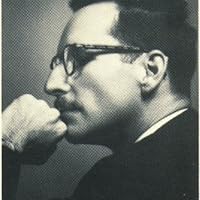
“Today we are living the grotesque spectacle of the poisoning
of the earth by the nineteenth-century hero system of unrestrained
material production. This is perhaps the greatest and most pervasive
evil to have emerged in all of history, and it may even
eventually defeat all of mankind. Still there are no "twisted" people
whom we can hold responsible for this.”
― Escape from Evil
of the earth by the nineteenth-century hero system of unrestrained
material production. This is perhaps the greatest and most pervasive
evil to have emerged in all of history, and it may even
eventually defeat all of mankind. Still there are no "twisted" people
whom we can hold responsible for this.”
― Escape from Evil
All Quotes
|
My Quotes
|
Add A Quote
Browse By Tag
- Love Quotes 97.5k
- Life Quotes 76k
- Inspirational Quotes 73k
- Humor Quotes 44k
- Philosophy Quotes 29.5k
- Inspirational Quotes Quotes 27k
- God Quotes 26k
- Truth Quotes 23.5k
- Wisdom Quotes 23.5k
- Romance Quotes 23k
- Poetry Quotes 22k
- Death Quotes 20k
- Happiness Quotes 18.5k
- Life Lessons Quotes 18.5k
- Hope Quotes 18k
- Faith Quotes 18k
- Quotes Quotes 16.5k
- Inspiration Quotes 16.5k
- Spirituality Quotes 15k
- Religion Quotes 15k
- Motivational Quotes 15k
- Writing Quotes 15k
- Relationships Quotes 14.5k
- Life Quotes Quotes 14k
- Love Quotes Quotes 14k
- Success Quotes 13.5k
- Time Quotes 12.5k
- Motivation Quotes 12k
- Science Quotes 11.5k
- Motivational Quotes Quotes 11.5k


